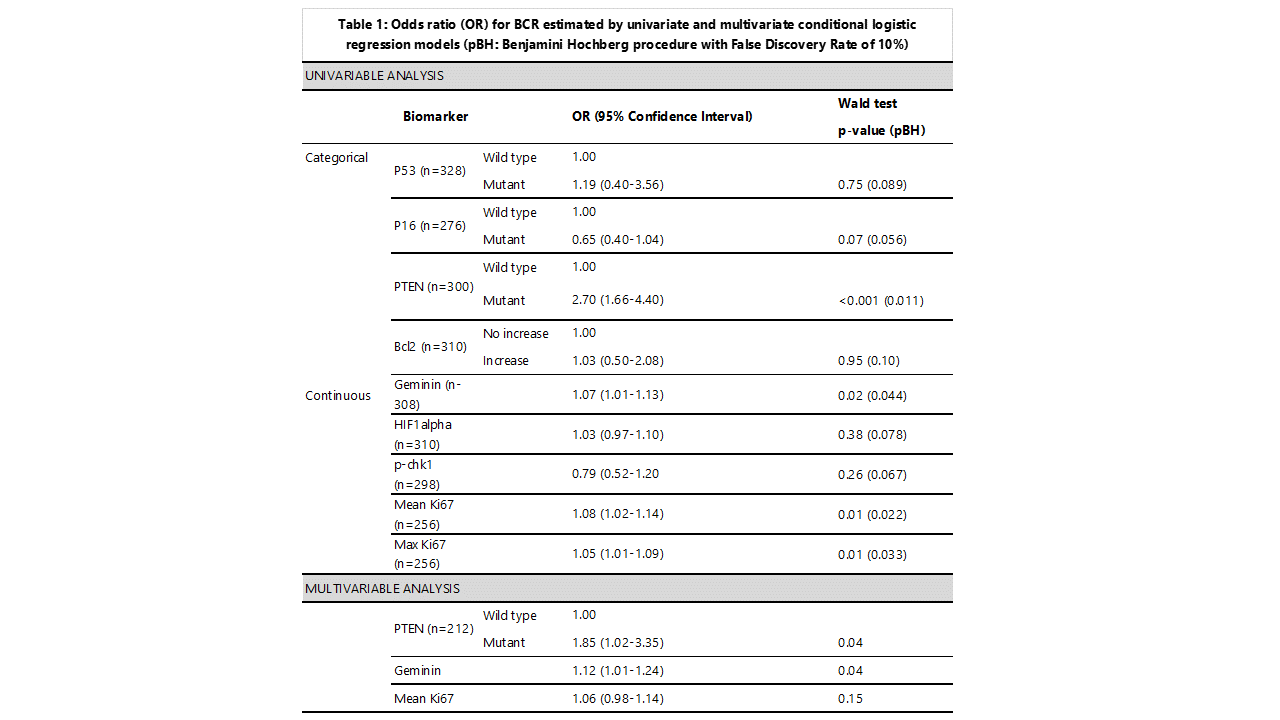Multi-candidate immunohistochemical assessment of prognostic biomarkers in the CHHiP prostate trial.
Anna Wilkins,
United Kingdom
OC-0430
Abstract
Multi-candidate immunohistochemical assessment of prognostic biomarkers in the CHHiP prostate trial.
1Institute of Cancer Research, Radiotherapy and Imaging, London, United Kingdom
Show Affiliations
Hide Affiliations
Purpose or Objective
Background: Protein markers of hypoxia,
apoptosis, cell proliferation, cell cycle checkpoints, and growth factor
signalling have shown prognostic ability in previous randomised trials of
radiotherapy for prostate cancer; such markers may help select patients with
localised prostate cancer for treatment intensification/de-escalation. Trans-CHHiP
(CRUK A12518) was a translational substudy within the CHHiP (CRUK/06/016) trial
of prostate radiotherapy fractionation. The study aimed to validate whether
protein markers of the above biological pathways could improve prediction of
prognosis following radiotherapy.
Material and Methods
Methods: A matched case:control study was
used in which patients with biochemical or clinical failure after radiotherapy
(BCR) were matched to patients without recurrence according to established
prognostic factors (Gleason score, presenting PSA, tumour-stage and
fractionation schedule). Immunohistochemical (IHC) staining of diagnostic
biopsy sections was carried out for markers of hypoxia (HIF1α), apoptosis (Bcl-2), cell proliferation (Ki67 and Geminin),
cell cycle checkpoints (p16, p53 and p-chk1) and PTEN (growth factor
signalling). Two independent investigators scored the staining for each marker.
Conditional logistic regression models were fitted using the case:control study
samples to estimate the prognostic value of each IHC biomarker separately and
then in a multivariable model including all markers identified as significant. All
models were adjusted for age at randomisation and stratified by matching strata.
Results
Results: IHC results were available for up to
164 cases matched to 164 controls for the individual biomarker analyses. PTEN,
Geminin and mean Ki67 were prognostic after adjusting for multiple comparisons
at 10% false discovery rate and were fitted in a multivariable model (table 1).
To maintain the 1:1 matching, 106 matched pairs had data available for all
biomarkers for the multivariable analysis where PTEN and Geminin showed
significant prediction of prognosis.

Conclusion
Conclusion: Geminin and PTEN were prognostic for
BCR independently of established clinical prognostic factors.